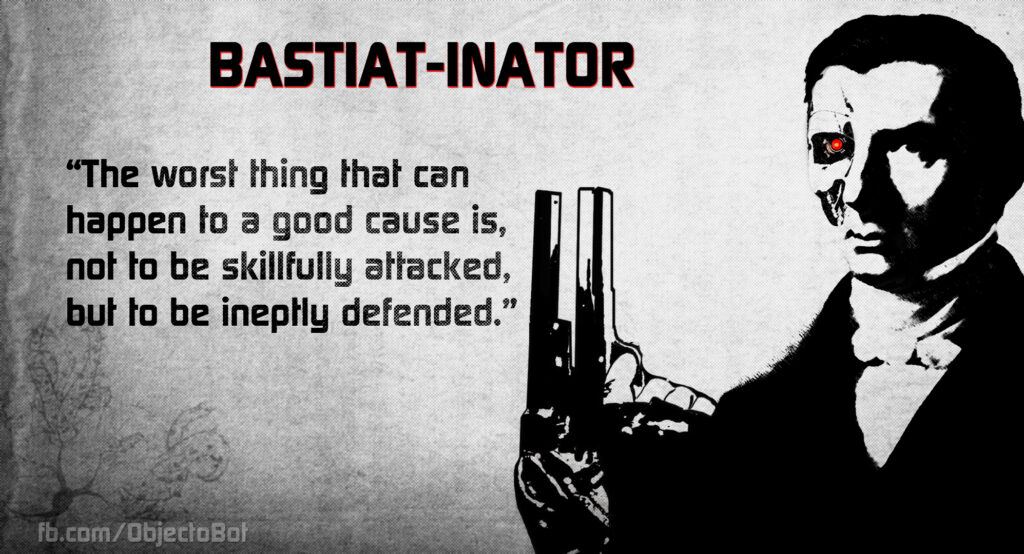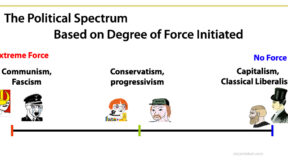“The worst thing that can happen to a good cause is, not to be skillfully attacked, but to be ineptly defended.”
― Frédéric Bastiat

That is an insightful observation from Bastiat, queue Arthur Brooks.
Arthur Brooks argues that capitalism needs to be defended based on moral grounds. Agreed. However, he continues to explain that the moral ground that capitalism needs to be defended on, is that it helps the poor.
Like that hasn’t already been tried ad nauseam.
“In any encounter with collectivists it is always the acceptance of altruism as an ideal not to be questioned that defeats us.” -Ayn Rand-
Yes, it is true, under capitalism the poor are better off, as is everyone, but this is merely a secondary consequence, not the moral justification. I repeat, it is a consequence, it is what happens when people act morally. The reason and justification of why capitalism is moral is that it is the only system consistent with man’s rational nature, AKA, the only system that is based on the recognition of individual rights, including property rights. The recognition of individual rights entails the banishment of physical force from human relationships: basically, rights can be violated only by means of physical force, and so in a capitalist society force is banned. The consequence of people acting morally and respecting each other’s rights, not coercing each other, results in everyone being better off, including the poor.
Notice that the essential principle underlining the ethical justification for capitalism is the respect of individual rights, not the benefit of any particular group of people. To frame the moral defense of capitalism as Brooks does, to say it is only good because it helps the poor is to accept the moral premise of the collectivists, that service to others is the only justification for existence. Capitalism is inherently the self-interested pursuit of one’s own happiness. The concept of rights only pertains to the individual. These principles cannot coexist with the ethical notion that only actions taken for the benefit of others are good.
Defending capitalism on the basis of, because it helps the poor, is a never-ending battle of statistical studies, where you literally go on, having to buy your life dime by dime from others. Every argument, and every action you want to take ends up being a cost-benefit analysis which becomes the permit for your existence. Permissions are not rights. The very concept of a right means an independent action that can be exercised without anyone’s permission. Defending capitalism, a system of rights, by asking for permission is self-defeating. Rights are good in themselves. To try to justify them through some beneficial end or consequence is to ask for permission, to admit you have no rights, is to lose the argument for capitalism.




